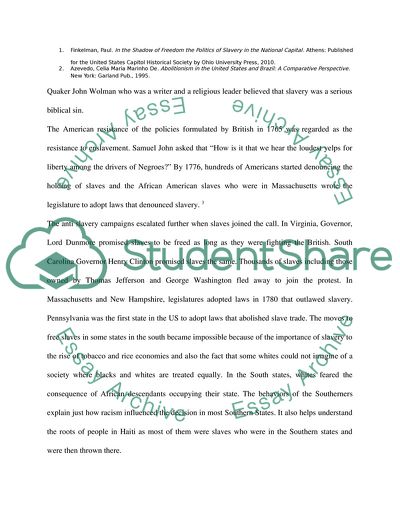Cite this document
(Abolitionism in the United States Annotated Bibliography Example | Topics and Well Written Essays - 1750 words, n.d.)
Abolitionism in the United States Annotated Bibliography Example | Topics and Well Written Essays - 1750 words. https://studentshare.org/history/1863529-abolitionism-in-the-united-states
Abolitionism in the United States Annotated Bibliography Example | Topics and Well Written Essays - 1750 words. https://studentshare.org/history/1863529-abolitionism-in-the-united-states
(Abolitionism in the United States Annotated Bibliography Example | Topics and Well Written Essays - 1750 Words)
Abolitionism in the United States Annotated Bibliography Example | Topics and Well Written Essays - 1750 Words. https://studentshare.org/history/1863529-abolitionism-in-the-united-states.
Abolitionism in the United States Annotated Bibliography Example | Topics and Well Written Essays - 1750 Words. https://studentshare.org/history/1863529-abolitionism-in-the-united-states.
“Abolitionism in the United States Annotated Bibliography Example | Topics and Well Written Essays - 1750 Words”. https://studentshare.org/history/1863529-abolitionism-in-the-united-states.


